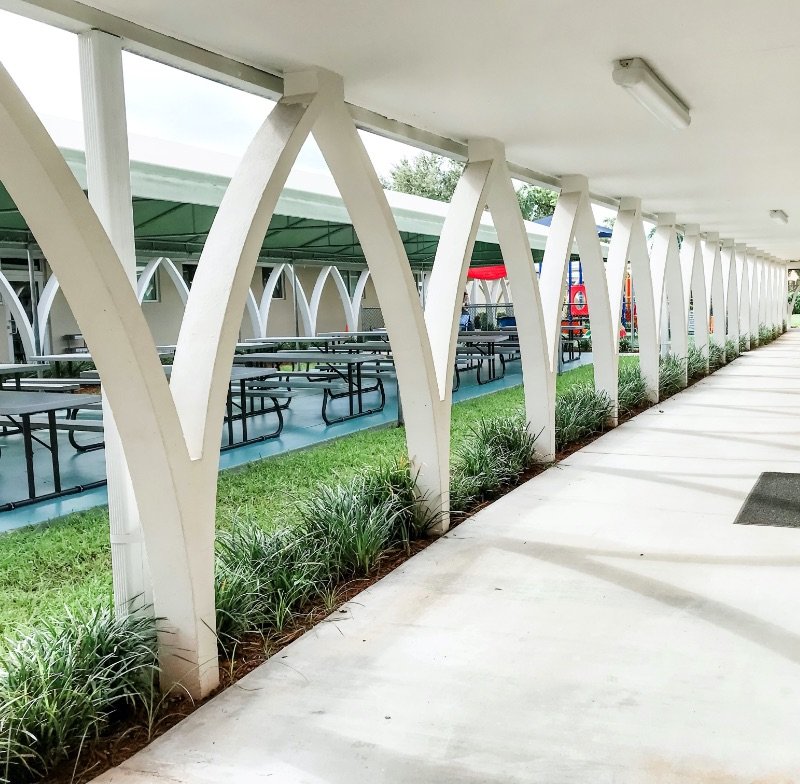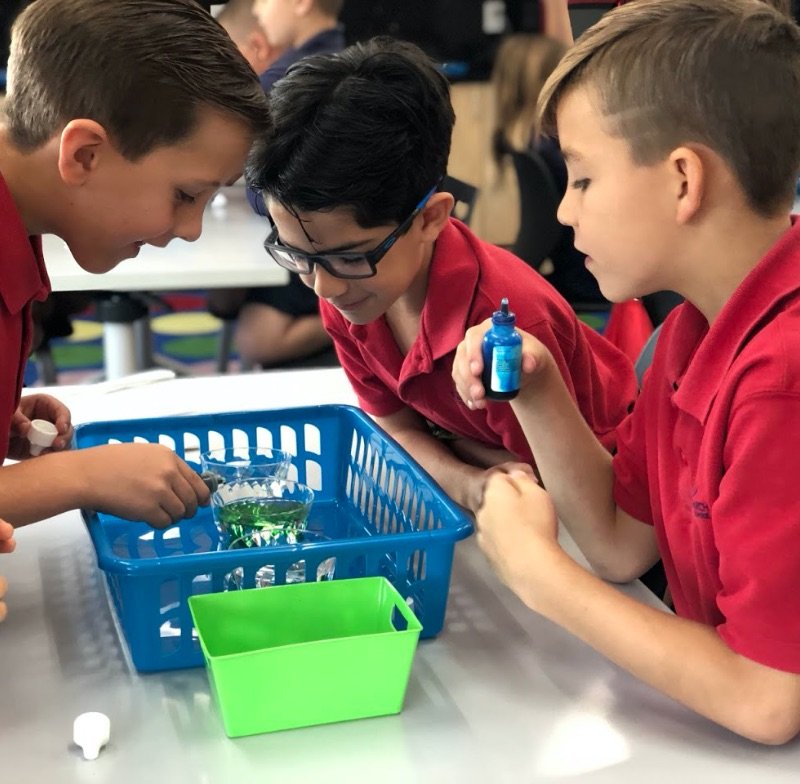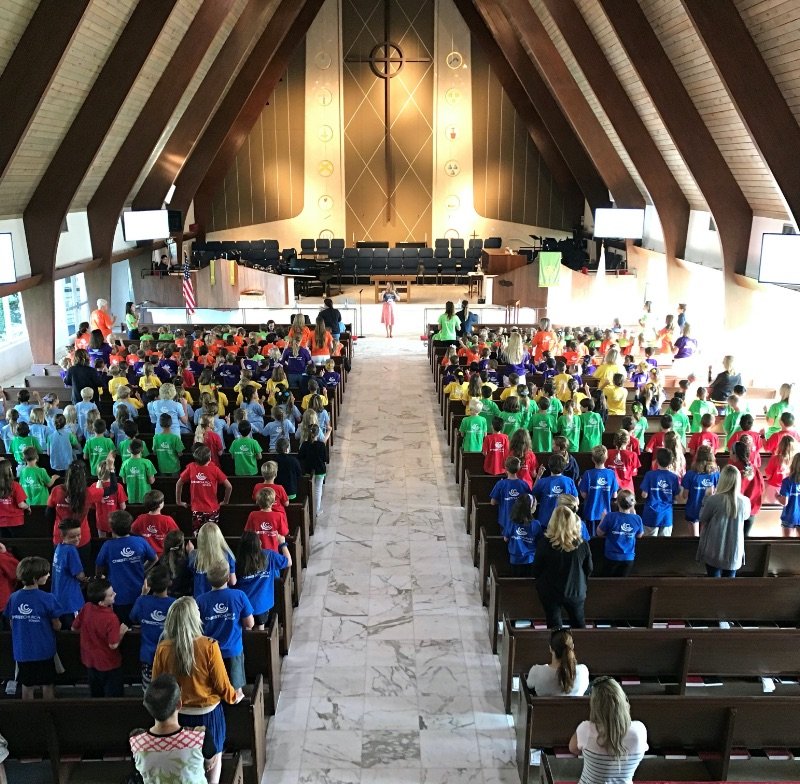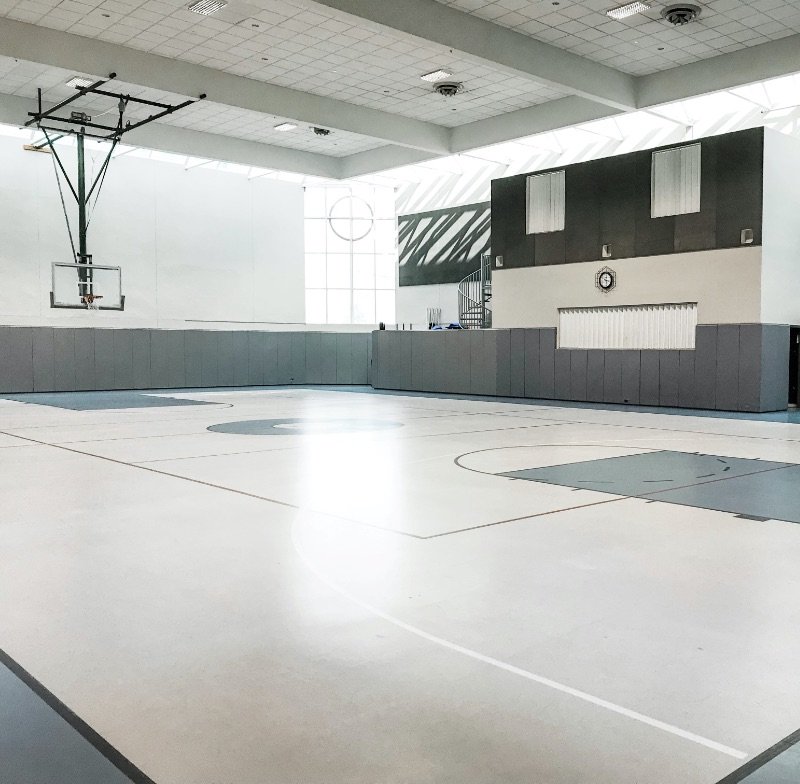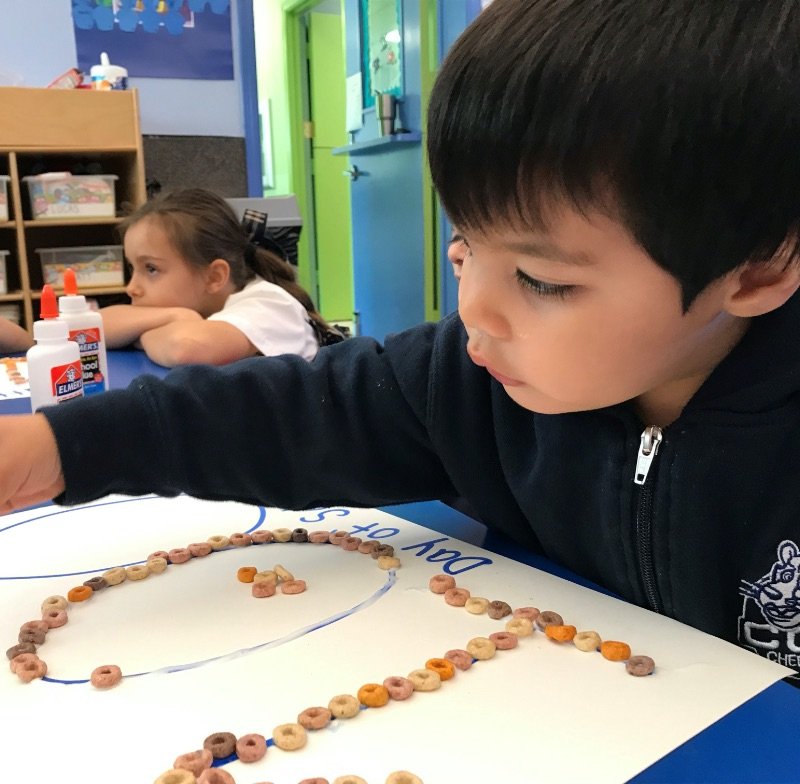“The role of the teacher is to create the conditions for invention rather than provide ready-made knowledge."
-Seymour Papert, Invent To Learn: Making, Tinkering and Engineering in the Classroom
The CCS Vision
- Innovative and enlightening learning experience that is transformational for both students and educators.
- Engaging interdisciplinary approach that integrates the areas of Science & Social Studies, Technology, Entrepreneurship & Engineering, Arts and Mathematics (STEAM).
- Inquiry based approach guided by essential questions that help develop the 4 C’s: Collaboration, Creativity, Critical Thinking and Communication.
Innovation and the Maker Movement
As a school, we continue to revolutionize our teaching methodologies. Our classroom innovative maker spaces provide a place for thought-provoking, collaborative, project-based work that teaches students to face complexity. In the past few years, we are proud to say that we have reimagined and remodeled classroom space, the southeast building, the science/art lab and a portion of the Library Media Technology Center (LMTC). Our Parent Teacher Organization and Development Council continue to raise funds to transform, redesign, reconfigure and modernize these learning spaces. In November 2017, we were able to fully complete the learning commons and innovation lab (iLab) with moveable furniture, mobile technologies, reusable tools and consumable materials. These are adaptable collaborative exploratory spaces that will allow for authentic interdisciplinary projects connected to the real world. CCS will dedicate spaces and tools managed by lead teachers who support collaborative, student-driven learning and passion based learning. Teachers and staff will intentionally guide students in the 4 C’s: Collaboration, Creativity, Critical Thinking and Communication. The iLab experiential learning will connect to our rigorous curriculum as outlined in the curriculum guide.
These flexible, open spaces encourage:
- Passion-driven inquiry
- The iterative design model (Think. Make. Improve.)
- Hands-on, minds-on, hearts-on exploration
- Risk and opportunity to fail
- Metacognitive strategies
- Real-world problem solving
What is the Maker Movement and how does it help my student learn?
The Maker Movement, a technological and creative learning revolution underway around the globe, has exciting and vast implications for the world of education. New tools and technology, such as 3D printing, robotics, microprocessors, wearable computing, e-textiles, “smart” materials, and programming languages are being invented at an unprecedented pace. The Maker Movement creates affordable versions of these inventions, while sharing tools and ideas online to create a vibrant, collaborative community of global problem-solvers.
At Christ Church School our teachers are aware that the Maker Movement overlaps with the natural inclinations of children and the power of learning by doing. Our school is choosing to embrace maker activities that enhance the best student-centered teaching practices to engage learners of all ages.
Program Philosophy
“The world no longer cares about how much you know; the world cares about what you can do with what you know.”
– Tony Wagner, author and globally recognized expert in education
Transforming Education for the 21st Century to Create Innovators
What are we instilling?
- Agility and Adaptability
- Critical Thinking & Problem Solving
- Curiosity and Imagination
- Collaboration and Leading by Influence
- Initiative and Entrepreneurial Spirit
- Effective Oral and Written Communication
- Ability to Access and Analyze Information
The Importance of Flexibility and Iterative Design
“Arriving at one goal is the starting point for another.”
– John Dewey, American educational reformer
Metacognition | Thinking about Thinking | Tinkering–Friendly Models
Making, tinkering and engineering may require schools to undergo structural changes that support inquiry and project development over much longer periods of time than they are accustomed. At Christ Church School, we embrace this model and the experiential learning that results.
Think. Make. Improve.
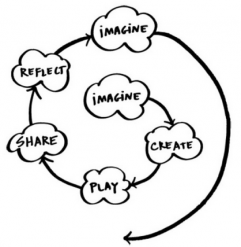
Spiral Design Model
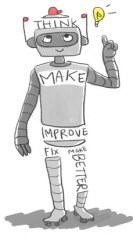
Iterative Development Model



